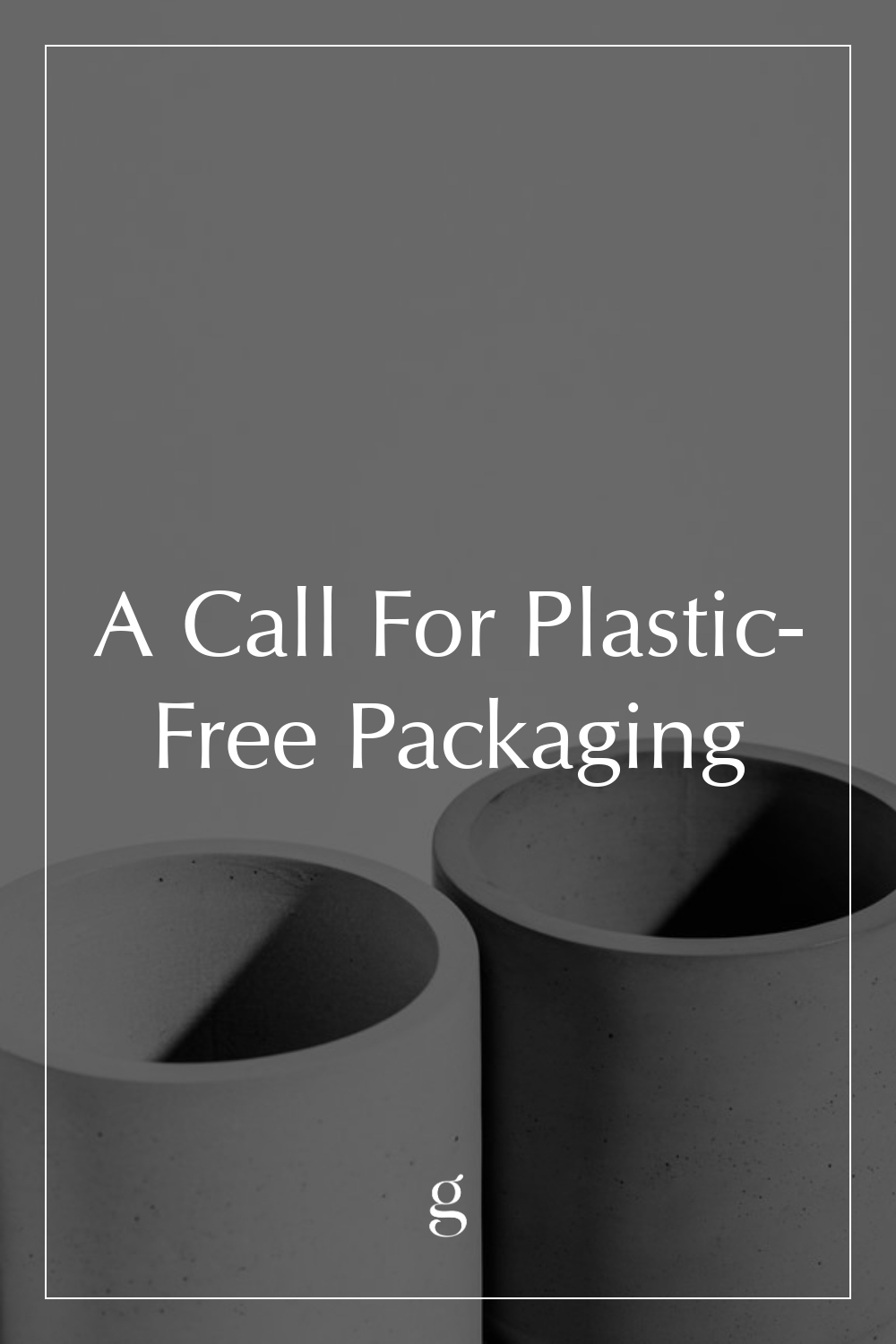
A Call For Plastic-Free Packaging
Convenience doesn’t need to be wrapped in plastic.
If we are going to lead impact-driven lives, start impact-driven businesses and shop from companies striving to impact our planet for the better, why is everything we buy still wrapped in plastic?
It’s an odd feeling to open a box delivered from a brand (often times a notably sustainable one) only to unravel layers of plastic, styrofoam, and paper to get to the merchandise. The majority of the time, the merchandise inside the box is tiny in comparison to the trash mound that now resides on the living room floor.
On a broad scale, this conversation begins with the companies who are creating the packaging materials and the sustainable brands aiming to ship consciously and ethically. Thoughtful research must be put into buying supplies to ship.
Companies like Everlane are taking a major stance on how their products are packaged and being “radically transparent” about the steps they are taking to ship their products with as little plastic as possible. Package Free shop is another company dedicated to not only shipping their products with recycled and plastic-free materials but they are founded on selling “zero-waste” products. They only sell products that are waste-free, eco-friendly and conscious in the way they are packaged.
“This conversation begins with the companies who are creating the packaging materials and the sustainable brands aiming to ship consciously and ethically. ”
If you’re looking for a better way to ship, the company RePack is an incredible resource for shipping sustainably. They have created a system for e-commerce brands to eliminate the need for any packaging materials at all by using reusable packaging that is shipped directly to the consumer then back to the RePack factory to be used again. This process eliminates tons of unnecessary single-use waste.
How Individuals Can Tackle The Plastic Problem
Of course, global shifts take time and only in the last decade or so has the conversation about the severity of our waste taken to the mainstream audience. Here are some ways that as consumers we can be proactive in spreading the idea of more conscious shipping materials:
Purchase Directly From The Brand:
This article in Forbes is a transparent look into how companies like Amazon are playing a huge role in the massive shipping waste problem. Small brands have a lot more control over monitoring how their products are packaged and shipped and will be more passionate about integrating recycled and plastic-free packaging into their business models.
Research The FAQs:
Many brands do not put information about the types of materials that they are using to ship, and this needs to start becoming more transparent. Reach out to the brand if there is nothing listed before placing an order and see if they can tell you the materials used to ship. You can also ask for as little waste as possible—or even no plastic—in the custom message typically provided when placing an online order. This is not to say that if their shipping materials are not perfect you shouldn’t support the brand, however this starts the conversation between you and the brand.
Leave A Review:
Brands listen. If you are disappointed by the amount of trash that came with your order, let the brand know. Chances are they are more focused on giving you the best quality merchandise and haven’t considered alternate shipping materials to actually get it to you. Again, this is a relatively new conversation and there are just beginning to be alternate materials like this company that provides recycled and biodegradable materials for companies to use to ship.
Shop Brick & Mortar:
The old-fashioned way of shopping requires very little waste when going into a store. Ideally, the only waste you may receive is a paper bag holding your merchandise. There are a lot of sustainable brands opting for brick & mortar as a way to bring the community together and meet their customers IRL as well. Continuing to support physical stores is a wonderful way to be waste-free and support local businesses.
RELATED READING
Courtney Jay Higgins is the Content Strategist at The Good Trade. She is also a Yoga Instructor, vegetarian, wellness and fashion enthusiast. Originally from Colorado, her soul found California when she came to get her degree in Visual Communications at the Fashion Institute Of Design & Merchandising. She has a background in telling a story through writing, creative direction and content creation. Her online blog hosts her unique perspective on the mergence of fashion and spirituality.


